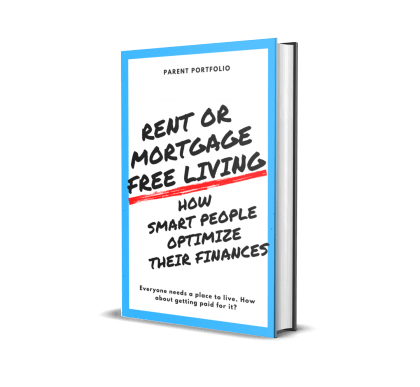Golden Rules: 10 Personal Finance Tips from The Richest Man In Babylon

Personal finance lessons are all around us in our everyday lives. Every day we handle money without thinking about the consequences of making poor decisions. However, we may not grasp our own financial mistakes. We can learn better financial habits from The Richest Man in Babylon by George S. Clason, an all-time favorite.
This book can help anyone avoid financial blunders, create wealth and build a financially secure future. I recommend this easy-to-absorb book to my business students and my children.
Richest Man In Babylon lays out the central tenets of good money management through ancient Babylonian parables told by charming characters, notably Arkad, the richest man in Babylon himself. Millions of readers have read it.
Clason gave it out initially as separate pamphlets to banks and insurance companies for their customers. Then it was published in 1926 before the Great Depression and has remained an inspirational classic.
The author uses endearing parables as personal finance lessons to build wealth. The book structures key money themes within “The Seven Cures” and “Five Laws of Gold.” Among the oldest civilizations, Babylonians were resourceful, wise, enterprising with a judicial nature. They were clever financiers and traders who invented money as a means of exchange.
Women Did Not Make Money Decisions In Babylon
All of the major characters are men. That is appropriate as women didn’t manage money then. Women could not apply for credit cards in their name until the Equal Credit Opportunity Act in 1974! Clason wrote when women had finally etched out a win with women finally getting the right to vote in 1920. Fortunately, we are now seeing women gain financial independence.
The Babylonians, enlightened about money and other things, but gender equality was not on their list. That said, don’t let the gender bias hold you back from this good read. Just recast it into contemporary times when women are often better with money!
10 Personal Finance Lessons From The Richest Man in Babylon For Today:
1. Pay Yourself First By Saving 10% of Your Annual Earnings
“Start thy purse by fattening“
“Pay yourself first” may have been coined by Clason. It means you should put away 10% of every paycheck into savings. Allocate your savings to an emergency fund amounting to at least six months of coverage for basic essential expenses. Unforeseen events are undesirable, so plan ahead.
Once establishing this fund, use some of your savings stashes to invest your money in retirement and taxable investment accounts. Putting away some money may be difficult at first, depending on your spending habits.
2. Spend Within Your Means
“Control thy expenditures.”
To set aside money for saving and investing, you may need to cut some costs. To control your expenses, assess your budget for your basic living needs. These are predictable monthly fixed costs such as mortgage payments or rent, property taxes, utilities, car loans, typical grocery bills, credit card payments, and other monthly expenses. Remember, these costs are for our needs rather than for our wants and desires.
As our income grows, we often increase our so-called “essential costs,” leading to lifestyle inflation. While we are allowed the occasional latte and extravagant dinners, we need to keep our spending in check. You shouldn’t deprive yourself of everything. However, fulfilling every desire is no longer a special treat.
Don’t fall into the trap of spending your raise soon after you have received it. It is tempting to buy something special upon getting a raise and bonus after a year of working hard. However, remember that your pay hike is pretax and shrinks on an after-tax basis. If you need some things, make a list of what you believe is essential if you had some extra cash.
Be reasonable about satisfying your every want. For example, that 10% raise on your $80,000 salary may not significantly help you to buy that luxury car (or chariot in ancient times), you have been eyeing. A rise in earnings may not fully accommodate every gratification we seek.
3. Make Your Investments Work For You Long Term To Accumulate Wealth
“Make thy gold multiply.”
Saving and investing your money as early as possible enables you to benefit from compound interest through the years. Compounding is a magical way of earning interest on the principal invested and the cumulative effect of earning interest on that interest. Compounding works to your advantage when it is your invested money.
On the other hand, compounding works against you when you borrow long-term like for your home.
Arkad explained how this magic works: “As they labored for, so their children also labored and their children’s children until great was the income from their combined efforts.“
4. Pitfalls of Investment Is Overconfidence
“Guard thy treasures from loss.”
Investments are often fraught with dangers, especially for beginners. Not every investment bears fruit. Learn about the risks of investing, whether in the stock market or investing in a new business. Consult those with training and more experience in that field. Arkad tells of his folly when he entrusted a bricklayer to buy jewels for him and returned with glass.
While you can’t prevent every loss or mistake, there are ways to minimize your risks. When investing, you should diversify your portfolio and implement asset allocation depending on your age and life cycle. As your wealth increases, consult a financial adviser who may enhance your abilities to address and confront many financial, tax, and legal issues.
5. Owning Your Primary Home Is A Good Investment
“Make of thy dwelling a profitable investment.“
Buying your own home versus renting is a widespread debate. Clason via Arkad advocates in favor of owning your home. From the 1920s and well past the post-World War II period, buying your home was an essential part of the American Dream.
Is it still part of the American Dream today? US homeownership rose from 45.6% in 1920 to 66.2% in 2000. Ownership of your home has since retreated to 64.1% in June 2019 despite low mortgage rates. North Dakota is the state with the highest ownership ever recorded at 80% and was in 1900!
Higher Homeownership Rates For Millennials
With reduced mortgage rates, homeownership rates have improved recently. Millennials made up a higher (47.9%) proportion of US homeownership in 2020, up from 40% three years ago. These levels are far above where Millennials were during the Great Recession when they were crippled with student debt and had difficult work prospects.
There are many benefits to owning your home rather than paying rent in particular parts of the country. Don’t think of renting as throwing away money. It is more of a personal choice for many people. You should weigh the costs of owning your home (downpayment, monthly loan, insurance, taxes, and maintenance), against rising rents, lack of control over your home, and renter’s insurance.
Housing Appreciation Rates
When renting, consider the benefit of having savings for investments or retirement rather than its use as a down payment. Investing this money could be a significant plus. In the best years for the housing market (1976-2005), real price appreciation averaged 2.2% annually. This modest appreciation would compare to the long-term stock appreciation of 8% annually if you were to put your savings into the stock market.
Of course, there are many reasons to buy a primary home, such as gardening, more space, and decorating rather than as a good investment. However, investment returns may be a significant factor if you are on the fence between buying or renting your home.
6. Retirement Savings And Insurance
“..it behooves a man to make preparation for a suitable income in the days to come, when he is no longer young, and to make preparations for his family should he be no longer with them to comfort and support them.“
Although the American Express Company started offering private pensions in 1875, it wasn’t until the 1920s that many American industries offered private pensions. State governments established pensions for employees in 1911, followed by federal pension plans. Social Security income did not yet exist at the time Clason’s book was published.
Today, fewer people (4%) can count on the traditionally defined benefit pension plans if they work in the private sector. Participation through pensions is down significantly from 60% in the 1980s. The responsibility of saving for retirement falls on us. About half of Americans 55 or older have not put away any retirement savings. Roughly 22% have less than $5,000 in savings earmarked for retirement.
Don’t make this mistake. Saving for retirement is investing with deferred tax benefits. The earlier you save, the more you will benefit from compound growth. If offered, make sure to participate in your employer’s 401K plan, especially if they offer a matching contribution. Don’t throw away free money from your company.
The IRS sets caps on the maximum annual amount you may contribute to your 401K plan. Your contribution is on a pretax basis. You defer your taxes until you withdraw money. You will be able to direct these funds into an investment vehicle of your choice.
How 401K Matching Works
Many companies offer their employees access to 401K plans. Most employers provide a contribution match (partial or dollar-for-dollar) based on the employee’s contribution.
A typical example is a partial match provided by employers. The match means they will contribute 50% of what you put in, up to 6% of your salary. Some companies will give the more desirable dollar-for-dollar matches where your employers will put in what you do.
An Example
Let’s say you make $80,000 per year, and you contribute $4,800 annually based on a 6% cap in your plan. If your employer provides dollar-for-dollar matching, they would be contributing or compensating you with another $4,800. Consider this as a gift from your company. Why wouldn’t you make your contribution to earn your company’s match?
Check your plan at work as to what your employer offers. You want to get the maximum amount from your company to meet the cap of 6% or whatever the percentage is that they will contribute up to. That is free money for those employees that participate.
Roth IRAs
Separately, you should also fund a tax-advantaged Roth IRA on your own. You can direct your money into several different mutual funds. This Contribution is made with your after-tax income up to the maximum amount. Roth IRAs work differently than traditional IRAs as you are contributing after-tax dollars. The benefit of the Roth IRA is that you have already paid the taxes. You will not be paying taxes when withdrawing and can do so without penalties.
As Arkad insists, you need to provide a suitable income an older age to continue enjoying your life.
“…no man can afford not to insure a treasure for his old age and the protection of his family, no matter how prosperous his business and his investments may be.”
Insurance Is Needed Protect Your Family, Income, And Your Assets
“We cannot afford to be without adequate protection.“
Insurance planning is one way to protect your family in the event of your passing. Your company’s benefits package may provide life insurance. However, it is usually a smaller amount than you need. You should make sure to have enough coverage for essential living payments and future costs like college tuition.
Besides life insurance, there are other insurance types you need to protect your assets, income, and family. There are 8 types of insurance to consider: car, home, renters, health, disability, long-term care and an umbrella policy.
7. Invest In Yourself
“Increase thy ability to earn”
After you earn your college degree, real learning has just begun. You should leverage any skill-building or training opportunities to increase your earnings if offered at your workplace.
I remember being at an employee orientation with others shortly after I graduated college. The head of human resources at the investment bank provided us with a list of investment workshops (in different kinds of financial securities) she recommended we take over the next 6-12 months.
Being a bit of a learning nerd, I was excited by the opportunity to educate myself about unfamiliar areas. Someone behind me kept groaning as they described the workshops, and finally saying: “I didn’t take this job to go back to school!” Needless to say, the groaner didn’t stay long and not by his choice.
Use Every Opportunity To Gain More Skills
There are rewards for Increased skills at your job. “The more wisdom we know, the more we may earn.” Grow your skills in your 20s and beyond to make yourself a more valuable employee, or better job. You may want to start your own company. Learning should be a lifelong goal.
8. Invest In What You Know Or Seek Smart Advice
“Gold slippeth away from the man who invests it in businesses or purposes with which he is not familiar or which are not approved by those skilled in its keep.”
Arkad tells a Babylonian tradition that sons of wealthy parents must earn the right to inherit the estate of the parents. Arkad gave his son two things his parents denied him. First, he gave his son a bag of gold and a clay tablet carved with the five laws of gold. He told his son to come back in 10 years and give his father an account of how he did. If worthy, he would inherit the estate.
Ten years later, his son came back to tell his father he handled the gold poorly and lost it all. He had gotten involved with horse racing and wagering with deceitful men. His son admitted he knew nothing of horses, a business he was unfamiliar with. These men defrauded him.
The son sought employment but had no practical training. He then turned to the clay tablets, which contained financial wisdom and provided him a road to wealth.
Lost The Gold, Gained The Wisdom
Essentially, his son followed Arkad’s wisdom which provided greater value than that of the bag of gold. As a result, he multiplied his earnings by putting 10% of his earnings into savings, spending less than he earned.
He also learned how to make savvy investments from knowledgeable financial advisors, avoiding the scams he had experienced before.
Arkad was impressed with the multiple bags of gold returned to him, and he provided his son with the inheritance upon Arkad’s passing.
9. A Lesson In Borrowing and Lending From The Gold Lender
Mathon, the gold lender, is approached by Rodan, the spearmaker, who earned a fortune of fifty gold pieces. Rodan’s sister wants him to lend his money to her husband because he cannot seem to make enough earnings on his own. Mathon provides counsel to Rodan based on his largely successful lending experience.
“Can the loan be well made if the borrower cannot pay?
Mathon shares the ways he makes loans if the borrower can demonstrate:
- possessions like property or jewels with greater value than the loan that can be collateral;
- they are a wise trader or purpose of money is wise;
- the capacity to earn enough to pay back the debt, and
- there is a guarantor to pay back the loan if the borrower is unable.
Mathon will not make a loan to a borrower who is:
- indiscreet with investments;
- will take shortcuts to make money; or
- poor (or lazy) workers.
In the end, Rodan made his decision not to lend money to his sister’s husband. He believes his brother-in-law to be not only envious but also lazy. Rodan knows from experience that his sister’s husband is a spendthrift and will use the money on unnecessary things and will not repay him.
“Ill fortune pursues every man who thinks more of borrowing than of repaying.”
10. Budget Rule: 10/70/20
The clay tablets of Babylon provided a budgeting plan of 10/70/20 with earnings allocated as follows:
- 10% goes for savings for future investments.
- 70% should go for necessary expenses, notably to provide for home, clothes, and food.
- 20% will be for paying off debt.
The above percentages provided by Clason differ from the Budget Rule of 50/20/30 or spending 50% for your needs, 30% for your wants and 20% allocated to savings.
While the Babylonian budget rule may seem to be antiquated, budgeting any kind that works for you is the best way to control your spending. Overspending leads to having to borrow and carrying too much debt. Whatever plan can you choose and stick to is good so long as you spend within your means and don’t overburden yourself with debt too challenging to payoff.
Final Thoughts
Arkad, as the richest man in Babylon, passes on his financial knowledge to generations of readers, which wisdom remains excellent advice to those wanting to create and grow wealth to this day.
His stories and that of others in the book are classic, easy to grasp and implement. The rules may differ but remain entirely relevant today. Whatever way it is easiest to learn personal finance, take those first steps through tales of old or contemporary means.






